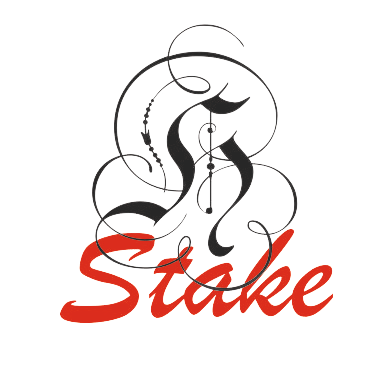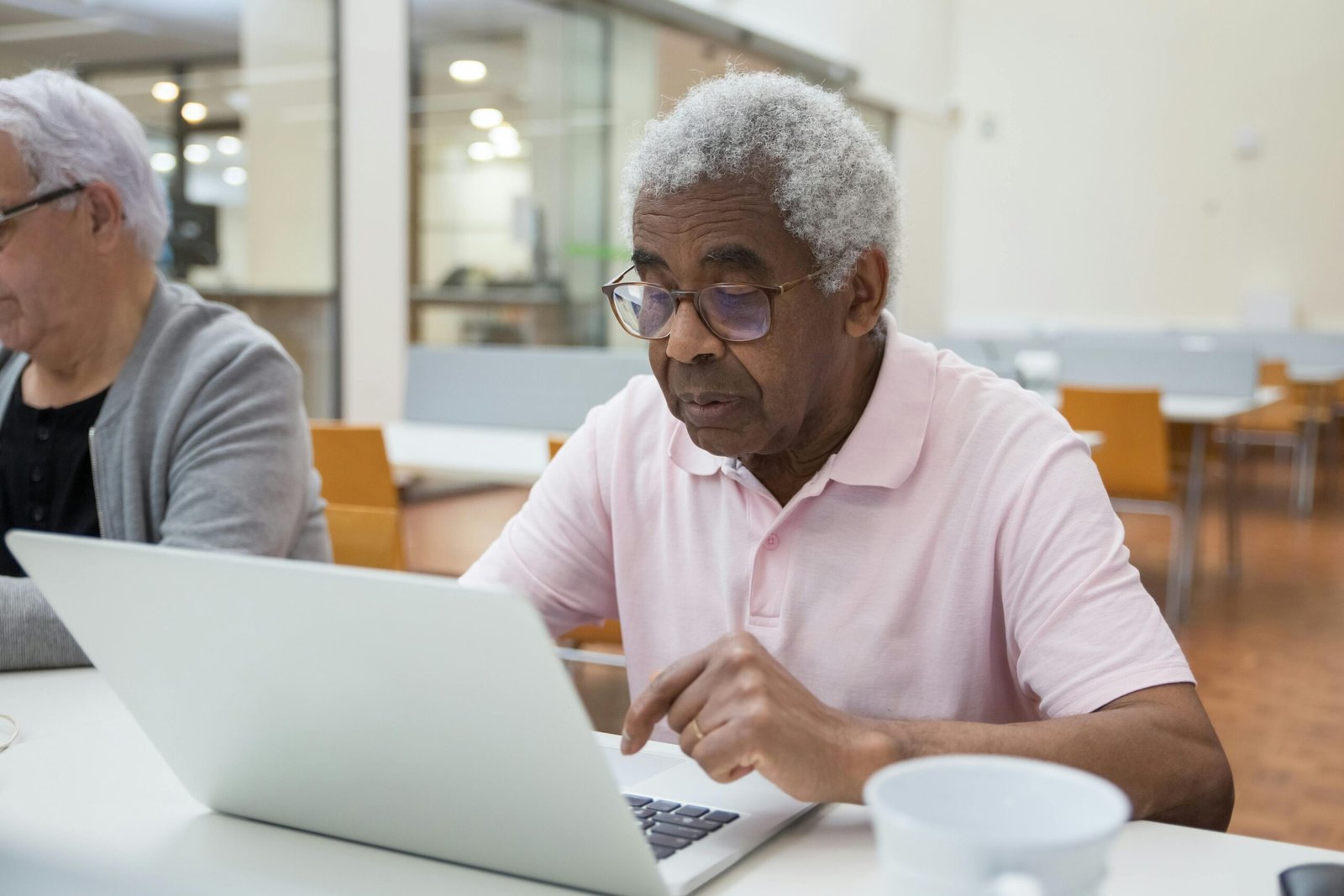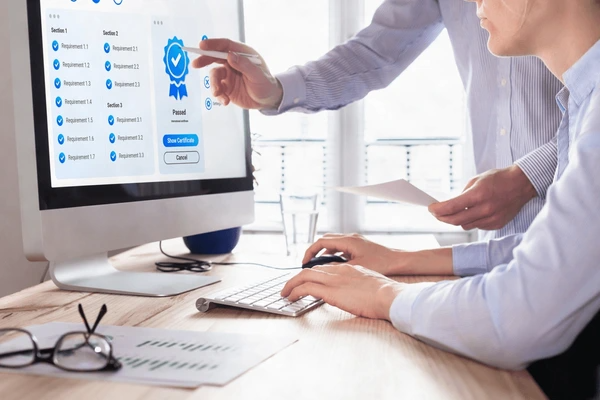The continuous, voluntary search for knowledge motivated by either professional or personal goals is referred to as lifelong learning. Unlike formal education, which typically occurs within structured settings and over a fixed period, lifelong learning extends throughout a person’s life and can take place in various contexts, including work, leisure, and community activities. This form of learning is essential for staying relevant in a rapidly changing world, allowing individuals to continuously refine their skills, explore new interests, and make meaningful contributions to society.
The need for lifelong learning is heightened by the fast pace of technological advancements and societal changes. As the global economy becomes increasingly competitive, individuals must regularly update their skills to remain viable in the job market and adapt to diverse cultural and professional environments. Beyond career benefits, lifelong learning promotes personal growth, nurturing curiosity, creativity, and resilience. It equips individuals with the tools to navigate life’s challenges and maintain mental sharpness, making it a crucial component of professional success and personal fulfilment. The key skills required for lifelong learning is grouped into two:
1. Core Skills for Lifelong Learning
A. Self-Directed Learning
Self-directed learning is a core skill that emphasizes the importance of autonomy in the learning process. It involves taking the initiative to identify learning needs, set personal goals, seek out appropriate resources, and evaluate progress without relying on formal instruction. This autonomy is essential for lifelong learning, as it empowers individuals to pursue knowledge that aligns with their personal and professional goals. Strategies for becoming an effective self-directed learner include time management, goal-setting, and reflective practice, along with seeking diverse learning opportunities and regularly assessing progress. Overcoming challenges such as procrastination, lack of motivation, and difficulty in finding resources requires discipline, a growth mindset, and the ability to seek help when needed. Tools like planners, learning communities, and mentorship can further support self-directed learning efforts.
B. Critical Thinking and Problem Solving
Critical thinking and problem-solving are essential lifelong learning abilities that allow people to make reasoned judgements by analyzing information objectively, weighing the evidence, and applying logic. These skills are crucial for assessing the validity of new information, challenging assumptions, and solving complex problems encountered in various aspects of life. Techniques to enhance critical thinking include questioning assumptions, considering multiple perspectives, and engaging in reflective thinking. Additionally, practising active listening and open-mindedness helps individuals understand different viewpoints and make well-reasoned decisions. Effective problem-solving involves identifying the problem, generating possible solutions, evaluating options, and implementing the best solution. Techniques such as brainstorming, root cause analysis, and decision matrices are particularly useful in this process.
C. Adaptability and Flexibility
In a rapidly changing world, adaptability and flexibility are essential for lifelong learners. Adaptability involves adjusting to new conditions, whether they involve technological advancements, changes in work environments, or personal circumstances. Lifelong learners must be adaptable to thrive in an unpredictable world, as it allows them to embrace change and seize new opportunities. Developing a growth mindset, which is the belief that abilities and intelligence can be developed through effort, learning, and perseverance, is crucial for fostering resilience and a positive attitude toward continuous learning. Managing change and uncertainty involves strategies such as staying informed, seeking support, and practising mindfulness, along with cultivating flexibility by being open to new ideas and willing to step out of comfort zones.
D. Digital Literacy
Digital literacy, the ability to use digital technologies effectively and responsibly, is a fundamental skill in the modern age. It involves using software, surfing the internet, comprehending digital security, and assessing information found online. Lifelong learners must be proficient in essential digital tools and platforms that support learning, such as online courses, collaboration tools, and research databases. Navigating the vast digital information landscape requires developing critical evaluation skills to discern credible sources from misinformation, which involves checking the credibility of sources, cross-referencing information, and being aware of biases in digital content. In a world where digital skills are increasingly important, digital literacy is crucial for accessing, creating, and sharing knowledge online.
E. Communication and Collaboration
Effective communication and collaboration are key skills for lifelong learning, enabling individuals to share ideas, seek feedback, and work with others to achieve common goals. To effectively communicate, one must not only express oneself but also actively listen to and comprehend the viewpoints of others. Collaborative learning techniques, such as group discussions, peer reviews, and cooperative projects, enhance understanding and foster a sense of community among learners. In today’s interconnected world, collaboration often occurs remotely, making it essential for lifelong learners to be proficient in using tools like video conferencing, project management software, and cloud-based document sharing to facilitate teamwork, whether in-person or online.
F. Time Management and Organization
Time management and organization are critical skills for balancing learning with other responsibilities. Lifelong learners prioritize tasks based on importance and urgency and set SMART goals to stay focused and motivated. Techniques like the Pomodoro Technique, time blocking, and the Eisenhower Matrix can help manage time efficiently, ensuring that learning remains a priority amidst other commitments. Maintaining organization is equally crucial, and tools like digital applications, calendars, and to-do lists assist lifelong learners in keeping track of their objectives, due dates, and available resources. Developing a consistent organizational system reduces stress and improves productivity, enabling lifelong learners to make the most of their time and resources.
2. Emotional and Social Skills for Lifelong Learning
A. Emotional Intelligence
Emotional intelligence (EI) is a crucial skill for lifelong learners, involving the ability to recognize, understand, and manage one’s own emotions as well as those of others. This skill enhances self-awareness, interpersonal relationships, and the capacity to cope with stress, all of which are vital in learning environments and collaborative efforts. Individuals with high EI communicate effectively, resolve conflicts, and work well in teams, which are essential traits for navigating social interactions and maintaining motivation in lifelong learning. Developing emotional intelligence can be achieved through practices such as mindfulness, empathy, and reflective journaling, helping learners become more attuned to their emotions and their impact on others.
B. Resilience and Perseverance
Resilience is the ability to bounce back from setbacks and stay focused on long-term goals, a quality that is indispensable for lifelong learners. The journey of continuous learning often comes with challenges such as failure, criticism, and uncertainty. Resilience enables learners to persist despite these obstacles, viewing setbacks not as reasons to give up but as opportunities for growth. Techniques like positive self-talk, goal-setting, and seeking support from others can help build and maintain resilience. Additionally, practising self-care and stress management is crucial for maintaining mental and emotional well-being, ensuring that learners can continue their journey even in the face of adversity.
C. Networking and Relationship Building
Networking and relationship building are essential for lifelong learners, providing access to new opportunities, resources, and diverse perspectives. Building a professional network involves engaging in industry events, participating on platforms like LinkedIn, and maintaining relationships with mentors, colleagues, and peers. Mentorship, in particular, plays a significant role in lifelong learning by offering guidance, feedback, and support. Effective relationship-building requires active listening, empathy, and consistent communication, fostering authentic connections based on trust and mutual respect. Opportunities to network and build relationships can be found at events, within online communities, and through professional organizations.
Practical Approaches to Lifelong Learning
Lifelong learners must set clear, attainable learning objectives to maintain their motivation and focus. Setting goals gives people focus and direction, making it easier for them to prioritize their work and track their advancement. By setting short-term and long-term goals, learners can break down their aspirations into manageable steps. Short-term goals offer immediate, specific targets, while long-term goals encompass broader objectives that may take years to accomplish. Utilizing techniques like the SMART framework ensures that these goals are well-defined and realistic. Regularly reviewing and monitoring progress allows learners to assess their achievements, identify obstacles, and make necessary adjustments, enhancing their learning journey.
Lifelong learners equally have access to a wealth of resources and opportunities, ranging from online courses and books to podcasts, webinars, and workshops. The key to effective learning lies in identifying and leveraging the most relevant and credible resources that align with individual goals. Both formal and informal learning opportunities play vital roles in this process. Formal learning, such as degrees and certifications, provides structured knowledge, while informal learning through self-directed activities like reading and experiential learning offers flexibility and personalized growth. Online platforms like Coursera, Udemy, and edX, as well as workshops and seminars, provide accessible and flexible options for learners to expand their knowledge and skills.
Self-reflection is also a critical component of lifelong learning, enabling individuals to examine their experiences, behaviours, and outcomes to gain insights and identify areas for improvement. Lifelong learners who engage in reflective practices, such as journaling, peer discussions, and self-assessment, are better equipped to learn from their experiences and make informed decisions about their future learning endeavours. Embracing feedback from others is equally important, as it provides valuable perspectives on performance and progress. By being open to constructive criticism and using it as an opportunity for growth, lifelong learners can continuously strive to enhance their skills, knowledge, and behaviours, ensuring ongoing development and success.
Challenges and Solutions
One of the primary challenges in lifelong learning is balancing time constraints with other responsibilities such as work, family, and personal commitments. Effective time management and prioritization are essential to carve out dedicated time for learning, which may require sacrificing certain activities or integrating learning into daily routines. Financial barriers also pose significant challenges, as the cost of education and access to quality learning resources can be prohibitive. However, seeking affordable or free resources, such as online courses, open educational resources, and community programs, can help mitigate these obstacles. Additionally, maintaining motivation over the long term can be difficult, especially when progress is slow or when faced with setbacks. Lifelong learners need to find ways to stay engaged, such as setting small, achievable goals, celebrating milestones, and connecting their learning to personal passions.
To overcome these challenges, lifelong learners can employ various strategies to enhance their learning experience. Time management techniques, such as time blocking, task delegation, and setting boundaries, can help ensure that learning remains a priority. Incorporating learning into everyday activities, like listening to educational podcasts during commutes, makes it more manageable. For those facing financial barriers, exploring options like MOOCs, library resources, and community education programs can provide access to high-quality learning at little or no cost. Additionally, building a supportive learning community through online forums, study groups, and professional organizations offers motivation, accountability, and opportunities for collaboration. Engaging with a learning community helps sustain interest and provides a network of like-minded individuals who can share the learning journey.
Conclusion
In a world that is constantly changing, lifelong learning is crucial for professional and personal development. The key skills required for lifelong learning include self-directed learning, critical thinking, adaptability, digital literacy, communication, time management, emotional intelligence, resilience, and networking. These skills enable individuals to navigate the complexities of modern life, stay relevant in their careers, and continue to grow on a personal level.
Looking ahead, the landscape of lifelong learning will be influenced by emerging trends such as automation, artificial intelligence, and the increasing value of soft skills. To remain competitive and adaptable in the future workforce, lifelong learners must continuously update their skills and remain agile. As the pace of change accelerates, the relevance of lifelong learning will only grow, making it essential for individuals to stay curious, open-minded, and committed to ongoing development.
The journey of lifelong learning is a personal commitment that requires dedication and persistence. Individuals are encouraged to take ownership of their learning by setting clear goals, identifying and utilizing resources, and building a structured learning plan. Connecting with a learning community can provide support and motivation along the way. By taking these steps, anyone can embark on a fulfilling and transformative journey of continuous learning.





